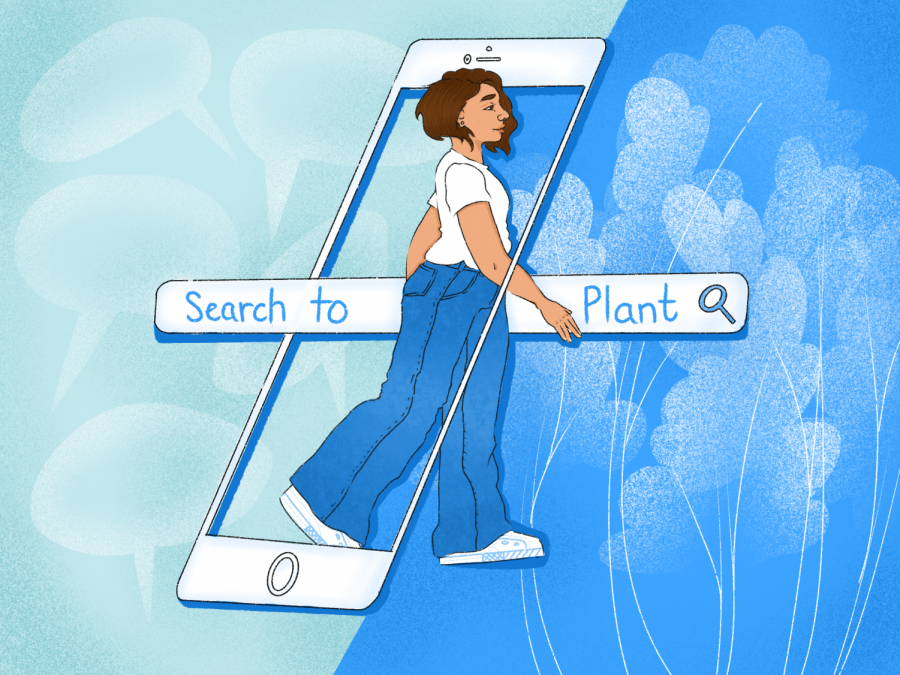UT-Austin students promote sustainable search engine Ecosia
April 12, 2021
On average, humans have cut down 28 million hectares of trees every year since 2016, according to The World Counts project. That’s the equivalent of cutting down an entire football field of trees every second.
When Aishwarya Agnihotri was in middle school, she learned about Ecosia, a search engine that uses most of its advertising revenue to plant trees in environmentally damaged areas across the world. Last summer, she reached out to two friends and fellow students, Jennifer Cho and Sunny Wang, to start the UT Ecosia campaign.
“We just all realized that it’s such an easy way to (make) an impact,” finance sophomore Agnihotri said. “Taking care of our planet, just being really involved and being intentional with our daily actions is something that’s really important.”
It takes about 45 searches on Ecosia to generate enough money to plant one tree, and the company has planted over 123 million trees in 12 years, according to the Ecosia site. The company said on the site that it devotes at least 80% of its monthly profits toward tree planting.
Since beginning the campaign in the fall, searches by UT students alone have generated enough money for Ecosia to plant 32 trees, Agnihotri said.
“We care about the future of our planet, and we feel that we’re in a great position where we can help not just ourselves, but also other people at UT, make sure that we have as green of a footprint as possible,” finance sophomore Wang said.
Meme Drumwright, an advertising and public relations associate professor, said Ecosia is transparent about its advertising operations.
“They state that their privacy policy doesn’t create personal profiles on search issue history, nor does it use external tracking tools like Google Analytics,” Drumwright said. “I was impressed that they’re not just seeing their social responsibility in terms of planting trees.”
The trio launched the UT Ecosia Instagram account, @utecosia, last fall with the goal of promoting Ecosia and making it the default search engine on campus. They’re currently focused on getting students to use the site and plan to ask the University to officially adopt it on University-owned computers.
“The student club is really smart in trying to get UT (students) to switch because what’s going to really help Ecosia is having some big organizations,” Drumwright said. “It potentially gives UT a way to express its environmental responsibility and its desire to be a good citizen.”
Because of the convenience of Ecosia, Drumwright said students can easily make the transition to using the site instead of their previous default browsers.
“Ecosia has shown me that to be sustainable and have a positive environmental impact, you don’t necessarily have to do anything huge or monumental,” Wang said. “It could be something that’s in your everyday life.”
Agnihotri, Cho and Wang said they were environmentally conscious before advocating for Ecosia and their involvement pushes them to continue making sustainable choices.
“Ecosia is a really good example of being a lot more sustainable on the internet and also producing impact by just doing simple Google searches that you would do on a daily basis but (still) being able to deliver change,” said Cho, a finance and advertising sophomore.



